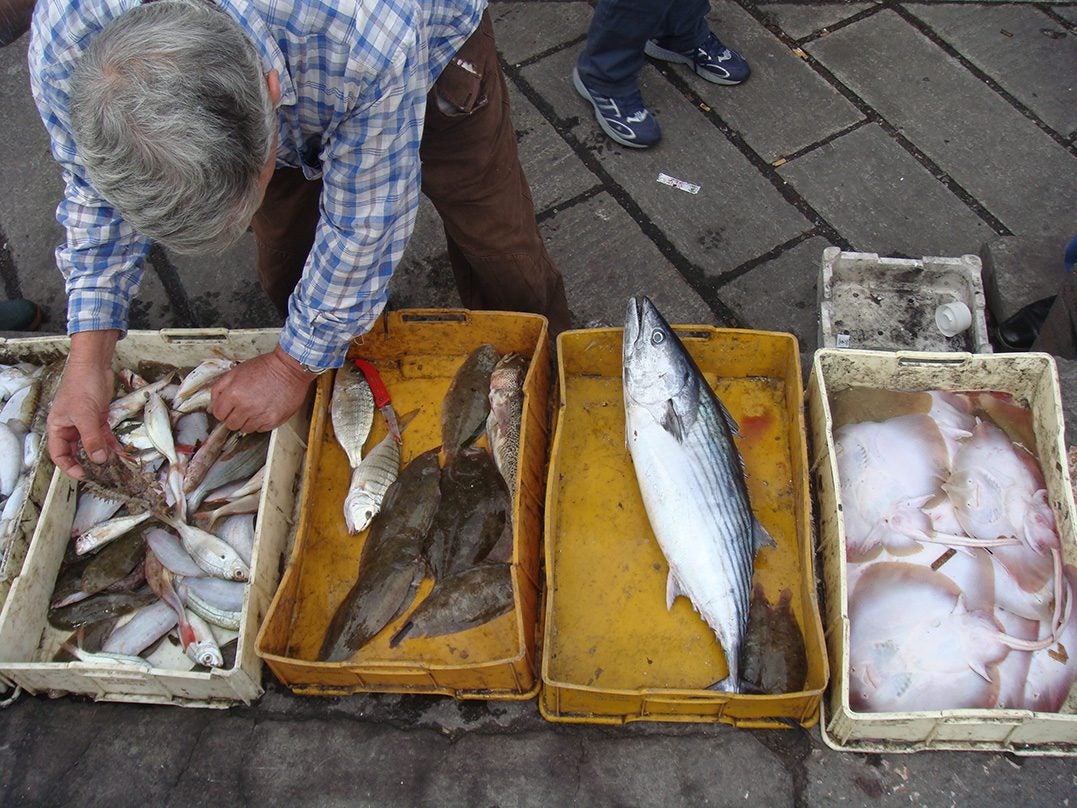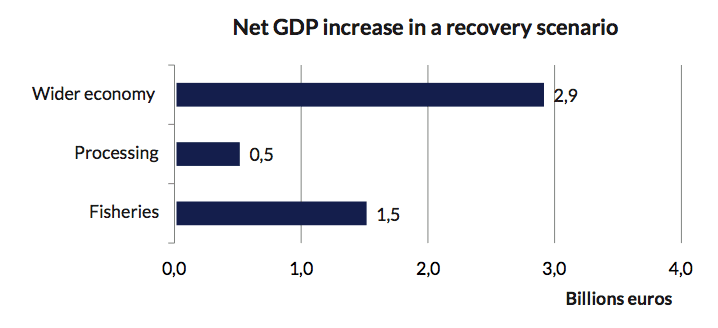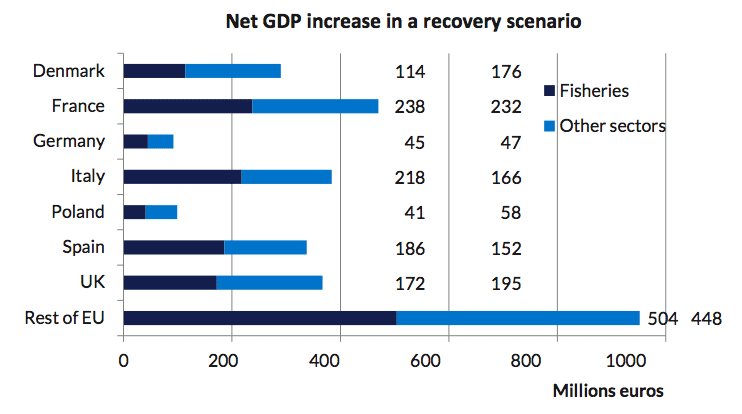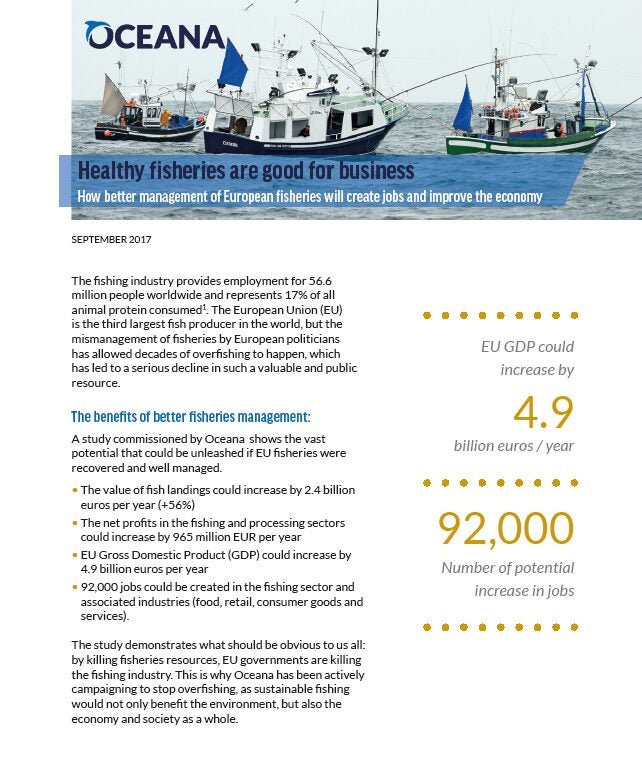Overview
The European Union (EU) is the third largest fish producer in the world, but a mismanagement of fisheries by European politicians has allowed for a serious decline of a valuable and public resource.
Currently 64% of European fish stocks are overfished, with 42% of stocks overexploited in the North East Atlantic and more than 90% of stocks overfished in the Mediterranean. This situation poses a serious threat to the health of the fish stocks, and the social and economic welfare of communities and associated sectors that depend on the fishing activity. The study demonstrates what should be obvious to us all: by killing fisheries resources, EU governments are killing the fishing industry. This is why Oceana has been actively campaigning to stop overfishing, as sustainable fishing would not only benefit the environment, but also the economy and the society as a whole.
More specifically, the study concludes that recovering fisheries, which could happen in less than 10 years, would increase:
- value of landings by 2.4 billion euros per year (+56%)
- net profit of the fishing and processing sectors by 965 million euros per year
- EU GDP (overall economy) by 4.9 billion euros per year
- Employment opportunities by 92.000 new jobs created/added in a wider economy
MORE FISH=MORE FOOD
Currently, due to overfishing, fish catches are taken from stocks smaller than their potential maximum size. Oceana’s study on the potential productivity of the European fish stocks estimates that if managed sustainably and following science, the catches in EU waters could increase by an additional 2.1 million tonnes a year, a 58% increase.

MORE FISH= MORE JOBS
In a recovery scenario, if fish stocks are rebuilt to sustainable levels in less than 10 years, society could benefit from 92.200 new and full-time jobs, distributed as follows:
- +23.500 direct jobs in the fishing sector
- +10.300 direct jobs in the processing sector, and
- +58.200 indirect jobs in the wider economy) related to sectors such as: food, retail and service)
Remarkably, the largest employment increase due to higher catches would be in the wider economy, where more than 60% of new jobs could be created. For each new fisheries-related job, at least 3 other jobs are created throughout the supply chain.

Public subsidies to the fishing industry currently amount to 935 Million euros per year. The study estimates that in a recovery scenario, minimum 700 million euros from taxpayers’ money could be saved or reinvested.
MORE FISH= MORE MONEY
When EU fish stocks are rebuilt and will deliver their maximum sustainable yield, the EU GDP will increase by 4.9 billion euros.
The study also estimates that among the EU countries that would benefit the most from the increased GDP are: France (+470 million euros), Italy (+383 million euros), the UK (+367 million euros), Spain (+338 million euros) and Denmark (+291 million euros).

The results of the research provide strong economic arguments for rebuilding EU fish stocks to sustainable levels. For the first time, the socio-economic value of rebuilding fisheries is calculated in a context of a wider economy. Therefore, sustainable fisheries have a powerful and a positive socio-economic impact on socio-economic development.


